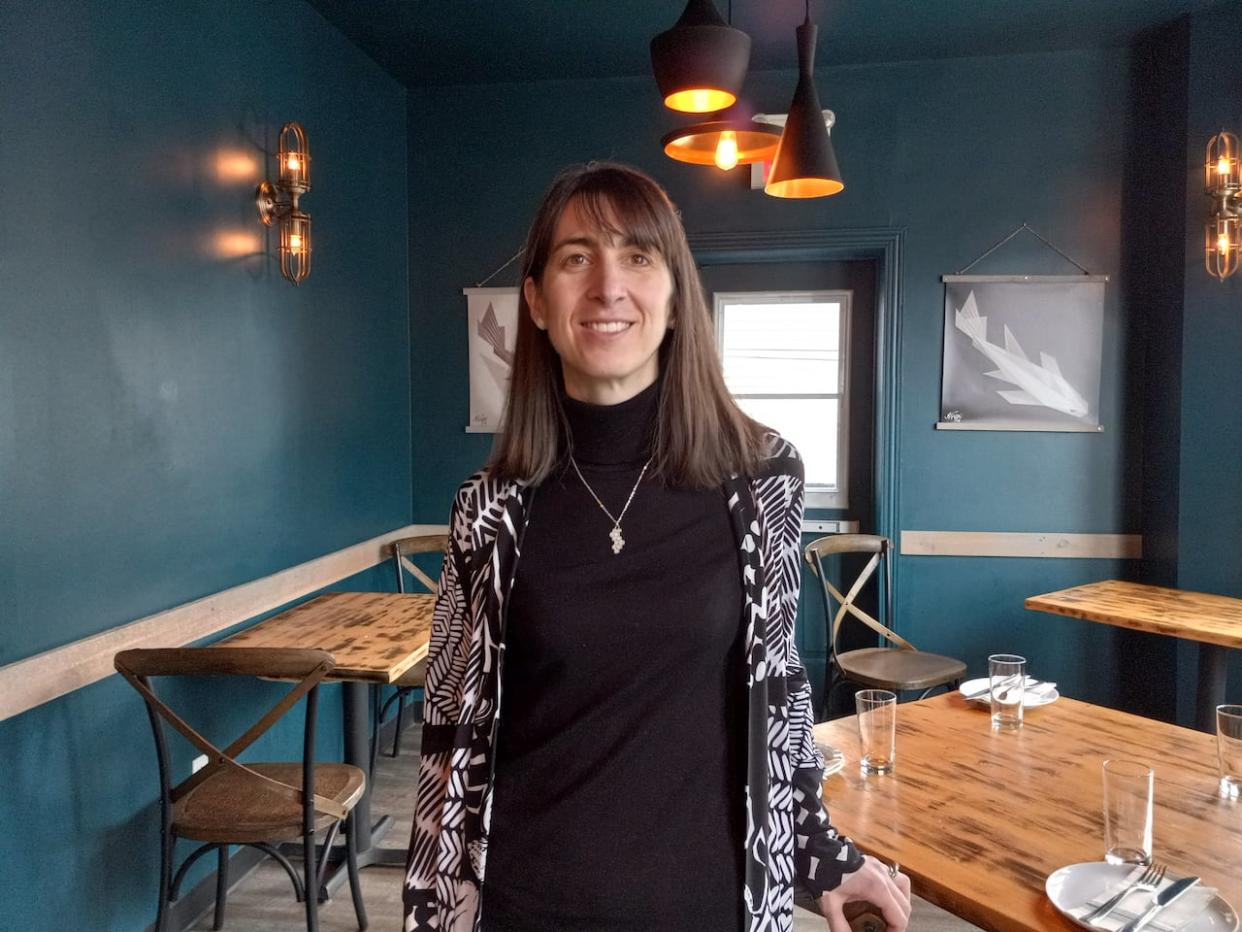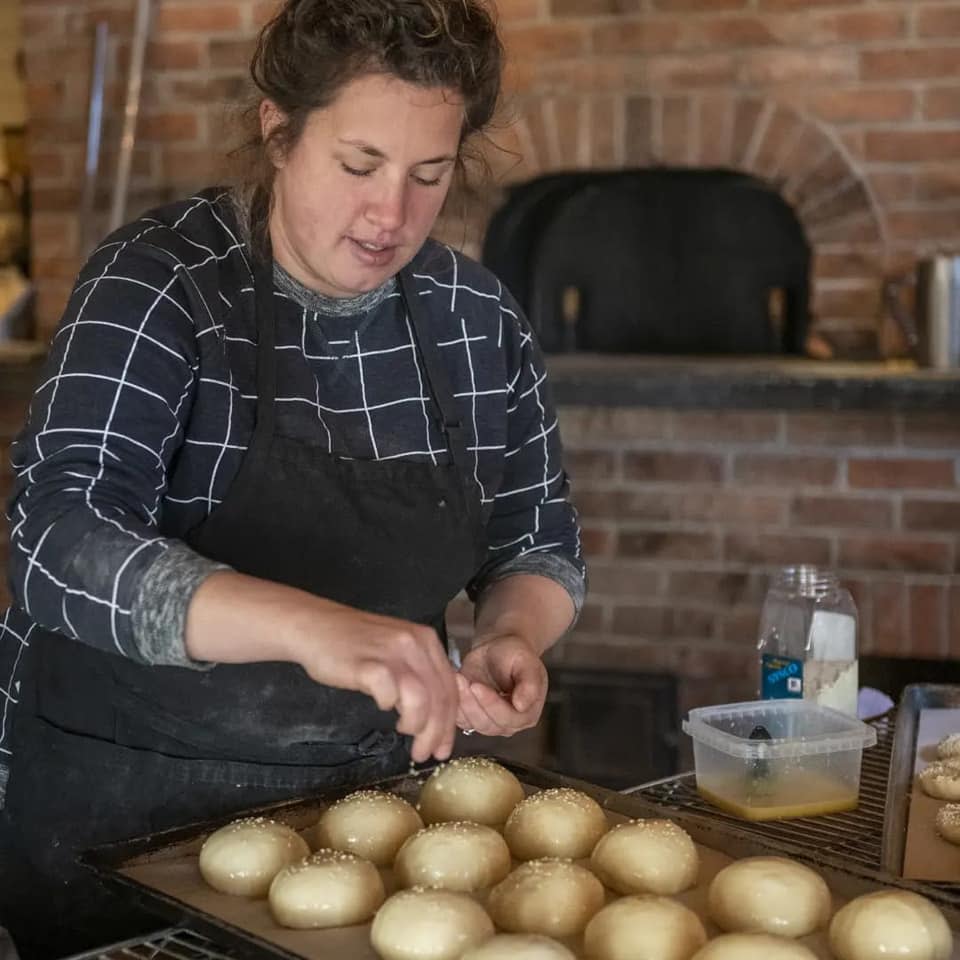In face of inflation, restaurateurs are crunching numbers for savings, just like their customers


Chinched co-owner Michelle LeBlanc says she's noticed the costs for things beyond food going up, and she's taking steps to adapt. (Elizabeth Whitten/CBC)
Shoppers aren't the only ones feeling the pinch of high food prices — higher up the chain, restaurateurs are looking for ways to save money as they enter their busiest season.
Michelle LeBlanc, co-owner of St. John's restaurant Chinched, said she's seeing the same rising food prices as the general public, and they're getting creative to find ways to control costs.
"Although we do buy a lot of our things in bulk, there's still some stuff that we can't buy in bulk. And even the bulk prices have gone up," LeBlanc told CBC News on Tuesday.
For example, she said, a jib — or 16 litres — of the canola oil they use in fryers has gone from $25 to around $55. It's one of the restaurant world's hidden costs, she said, as opposed to items like the fish and vegetables the general public sees higher prices for at the grocery store themselves.
Buying from wholesalers isn't always the most cost-effective, said LeBlanc, but finding the lowest price can add to their workload.
"We find ourselves spending an entire day going to multiple different locations trying to purchase items at the same quality, lower price," she said.
All of the everyday reopening things that we need to do in the spring this year has definitely shocked me, even compared to last year at how much everything is climbing. - Katie Hayes
With rising costs, she said, she's noticed fewer people dining out this time of year. Spring in N.L. also isn't quite tourist season but a lot of people in the province go away for vacations, leaving restaurants less busy — and the diners who are there aren't spending the way they used to, she said.
LeBlanc said the money they make in the summer offests their slower months but the past few summers have also been slower.
She added they've changed some things at Chinched to accommodate the shift, going from the more traditional format of appetizer, entree and dessert system to smaller plates that people can share.
Combating rising costs
Katie Hayes, co-owner and chef at the Bonavista Social Club, said when the restaurant reopened this season, she saw a big price increase on a range of items, including paint, livestock and propane.
"All of the everyday reopening things that we need to do in the spring this year has definitely shocked me, even compared to last year at how much everything is climbing," said Hayes.
She said they're trying to do things differently than in past years to keep costs down.

Bonavista Social Club co-owner and chef Katie Hayes says when the restaurant reopened for the year, she noticed things were much more expensive. (Bonavista Social Club)
Hayes has a garden and greenhouse to help defray food costs. But, she noted, the cost gardening supplies, including seeds and equipment, have also gone up. She also isn't near many food retail stores where she can comparison shop.
July and August are their busiest months, she said, but after speaking with the area's tourism operators she's expecting a slow season.
"That's OK because it's our reality, it's everyone's reality right now. But it … means that we can't do things the way we used to do them," said Hayes.
"I think that everyone is going to have to become very creative in ways to support their restaurants and keep everything going, for sure."
Hayes said she's been teaching and doing restaurant consulting during slower months.
She said they're trying to make it more feasible for families to dine out by offering smaller plates for people to share. Their hours of operation will also need to be carefully considered, as well as what they offer on their menu, like seasonal products.
LeBlanc said they moved Chinched's deli from inside the restaurant to Lester's Farm Market to expand their customer base.
"That's made a huge difference in the visibility of the restaurant as well, because there's quite a few people who didn't even know that the restaurant existed."
LeBlanc noted Newfoundland and Labrador is a seasonal province where restaurants rely on summer tourists to dine out, which can be precarious for the bottom line.
"We rely on it, I'd say, more than anyone would like to because it puts a lot of pressure on it."
Download our free CBC News app to sign up for push alerts for CBC Newfoundland and Labrador. Click here to visit our landing page.

 Yahoo News
Yahoo News 
